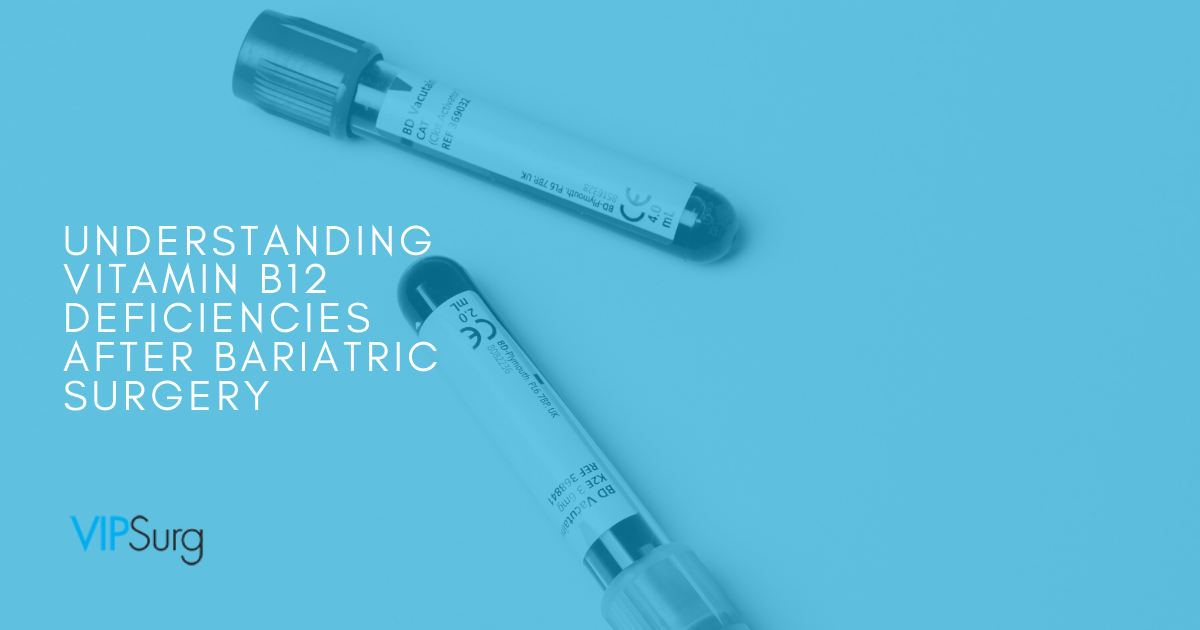Understanding Vitamin B12 Deficiencies after Bariatric Surgery

Vitamin B12 deficiency is one of the most common reasons for supplementation after any bariatric procedure, but especially after the gastric bypass. Most patients will get some vitamin B12 in their daily multivitamin, however, many will require additional supplementation in the form of a pill or a longer-lasting injection.
Before we get started, it is important to understand a little bit more about what vitamin B12 does and where it is found. The key function of vitamin B12 is to enhance the growth and replication of cells in the body. The benefits here are wide ranging. However, B12 is also important in the proper functioning of the nervous system and how our brain and spine connect to and communicate with the rest of our bodies.
We get the majority of our vitamin B12 through meat and dairy, and while it may initially seem obvious that the deficiency comes from reduced intake of those products, that isn’t the only reason. In fact, there is a metabolic reason that gastric bypass and, to some extent, duodenal switch patients experience B12 deficiency. B12 is broken down in the harsh environment of the stomach. Intrinsic factor, which is released by cells in the stomach, then binds to the B12. This binding occurs in the duodenum and absorption occurs in the ileum. However, when the intestinal tract is bypassed or modified as it is with the gastric bypass or duodenal switch, there is less surface area for this process to occur.
Result of a B12 deficiency can be significant. Anemia, a reduction in healthy red blood cells, can occur. And the nervous system can begin to malfunction. Some may not have significant symptoms due to their deficiency, while others may experience tiredness, difficulty exerting themselves, numbness in the extremities, even balance and memory problems.
Fortunately, the post-bariatric periodic screenings that every patient will undergo is finely tuned to address both B12 and other vitamin deficiencies. Assuming patients are compliant with their postoperative visits, we can typically detect and treat any vitamin deficiency very quickly, before the patient experiences any significant symptoms. Vitamin B12 is also available through a nasal spray (Nascobal), which is the way we most commonly prescribe it.
Over the course of months and years after surgery, the patient may be better able to tolerate red meat, eggs and dairy. At this point, if their B12 levels have stabilized at normal, they may be able to reduce supplementation.
Regardless of having bariatric surgery, many people in the general population also have B12 deficiencies. This is particularly true for women. It is important that, whether or not you’ve had bariatric surgery, you speak to your primary care physician and order a vitamin panel as part of a routine blood test. This is a quick and easy way to ensure that all of your vitamin levels are within normal range and, if they’re not, start a supplementation regimen. Never start or stop your supplementation without the advice of your doctor or bariatric surgeon.



